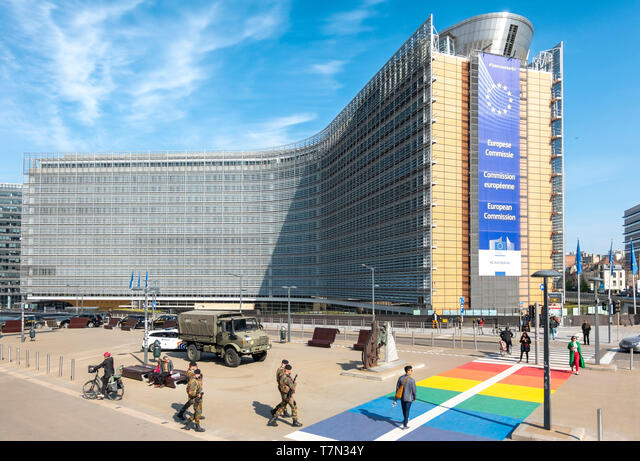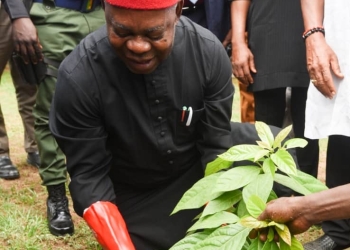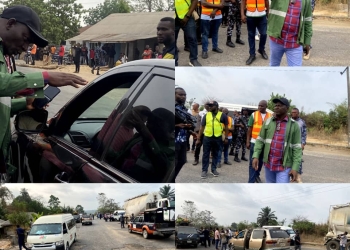By Anietie Akpan
The implementation of the European Union Deforestation Regulation (EUDR) aimed at ensuring that commodities imported into the European Union (EU) are not driving deforestation and forest degradation has been postponed by one year.
The regulation was due to come into force by December 2024 as part of the resolution of the delegation of the EU that invited 35 stakeholders to a conversation about the impact of the EUDR in Calabar on September 26, 2024 but it will now take effect from December 30, 2025.
A press release from the European Commission, through the Wildlife Conservation Society (WCS) Country Director – Nigeria Program, Mr. Andrew Dunn, explained that the extra 12 months of phasing-in time, is responding to calls by global partners.
The statement said the Commission is publishing additional guidance documents and a stronger international cooperation framework to support global stakeholders, Member States and third countries in their preparations for the implementation of the EU Deforestation Regulation. Given feedback received from international partners about their state of preparations, the Commission also proposes to give concerned parties additional time to prepare.
If approved by the European Parliament and the Council, “it would make the law applicable on 30 December 2025 for large companies and 30 June 2026 for micro- and small enterprises. Since all the implementation tools are technically ready, the extra 12 months can serve as a phasing-in period to ensure proper and effective implementation”.
The guidance as presented, according to the statement, will provide additional clarity to companies and enforcing authorities to facilitate the application of the rules, coming on top of the Commission’s continuous support for stakeholders since the law’s adoption.
At the same time, the Commission recognises that three months ahead of the intended implementation date, several global partners have repeatedly expressed concerns about their state of preparedness, most recently during the United Nations General Assembly week in New York.
Moreover, the state of preparations amongst stakeholders in Europe is also uneven. While many expect to be ready in time, thanks to intensive preparations, others have expressed concerns.
The statement further stated that “given the EUDR’s novel character, the swift calendar, and the variety of international stakeholders involved, the Commission considers that a 12-month additional time to phase in the system is a balanced solution to support operators around the world in securing a smooth implementation from the start.
With this step, the Commission aims to provide certainty about the way forward and to ensure the success of the EUDR, which is paramount to address the EU’s contribution to the pressing global issue of deforestation”.
It explained that “the extension proposal in no way puts into question the objectives or the substance of the law, as agreed by the EU co-legislators”.
Additional guidance for effective and pragmatic implementation presented make good on the Commission’s commitment to provide a reference of the recent collaborative efforts, involving stakeholders and competent authorities, to help ensure uniform interpretation of the law.
Key areas covered include details on the functionalities of the Information System, updates on penalties, and clarifications on critical definitions such as ‘forest degradation’, ‘operator’ in the scope of the law, and ‘placing on the market’. There is also further guidance on traceability obligations.
The guidance is divided into 11 chapters covering a diverse range of issues such as legality requirements, timeframe of application, agricultural use, and clarifications on the product scope. All of these are supported by tangible scenarios.
Information for the general public on the Commission website has also been updated and reorganised for easier understanding by all.
The Commission is publishing today the principles of the methodology it will apply to the EUDR benchmarking exercise, serving to classify countries as low, standard, or high risk, aiming to facilitate operators’ due diligence processes and enable competent authorities to effectively monitor and enforce compliance.
Following the methodology applied, a large majority of countries worldwide will be classified as ‘low risk’. This will give the opportunity to focus collective efforts where deforestation challenges are more acute.
To help ensure smooth implementation worldwide, the Commission and the European External Action Service are presenting a strategic framework for international cooperation engagement on the EU Deforestation Regulation. It identifies five priority areas of action such as support to smallholders, eight key principles such as a human rights-centred approach, and several implementation tools including dialogue and financing.
This comprehensive framework will aim to promote a just and inclusive transition to deforestation-free agricultural supply chains leaving no one behind. While the EU will step up dialogue and support even further, the partnership’s success will also rest on EU partners’ commitment to deliver on global targets to halt deforestation.






